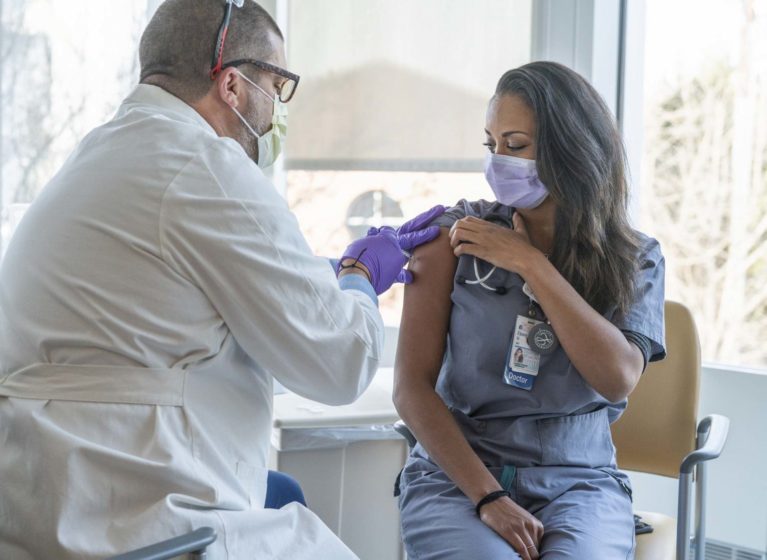The Moderna COVID-19 vaccine generates a slightly higher antibody response in recipients than does the Pfizer vaccine, new research from our Jeffrey Wilson, MD, PhD, suggests. The most significant difference was seen in older recipients.
The findings are among the first to quantify the antibody response generated by the two vaccines. The results are interesting, and fall in line with what other studies appear to be finding. But Dr. Wilson warns we should be careful not to jump to conclusions about the vaccines' effectiveness based on them.
The problem is that we don't know yet if antibody levels really reflect vaccine protection. The immune system is tremendously complex, and antibodies are just one player in it.
“The thing that will be interesting is figuring out if measuring antibody levels ends up being a good marker of vaccine protection,” said Dr. Wilson, an immunologist. "At the moment, we don’t know for sure.”
That said, the results are an important piece of a complicated puzzle doctors and scientists are trying to put together. It's the type of information that will help them determine if one vaccine is better for certain demographics. For example, if one vaccine might be superior for older folks.
Overall, the researchers found that two doses of Moderna produced more antibodies in the blood than did two doses of Pfizer: 68.5 micrograms per milliliter (µg/mL) for Moderna versus 45.9 for Pfizer.
Pfizer recipients age 50 and older produced fewer antibodies than younger recipients after the second dose (31.1 µg/mL vs. 59.0 µg/mL). This age disparity was not seen in people who received the Moderna vaccine. The researchers speculate this could reflect the difference in the amount of mRNA the vaccines contain – Moderna uses more than three times as much as Pfizer.
Does that difference mean that the Moderna folks are getting more protection? Again, we don't know.
The scientists did not specifically look at “neutralizing” antibodies – the type of antibodies that block the virus from entering cells. They also did not look at T cells and B cells, which are other important players in the body’s immune response. That will require more complex studies and more time.
“Ultimately, I think you need to do the hard studies. And the hard studies are looking at clinical outcomes and how they relate to antibody levels,” Dr. Wilson said.
What we know for certain, though, is that both the Pfizer and Moderna vaccines are tremendously effective at preventing hospitalization and death. I'm a Pfizer recipient, and I sleep better at night knowing my immune system has been prepped to protect me from COVID-19. If you haven't been vaccinated, please consider it, to protect you, your loved ones and your community.
If you have questions about the vaccine or its safety, contact me at jdb9a@virginia.edu and I'll get you answers from our folks who know.
